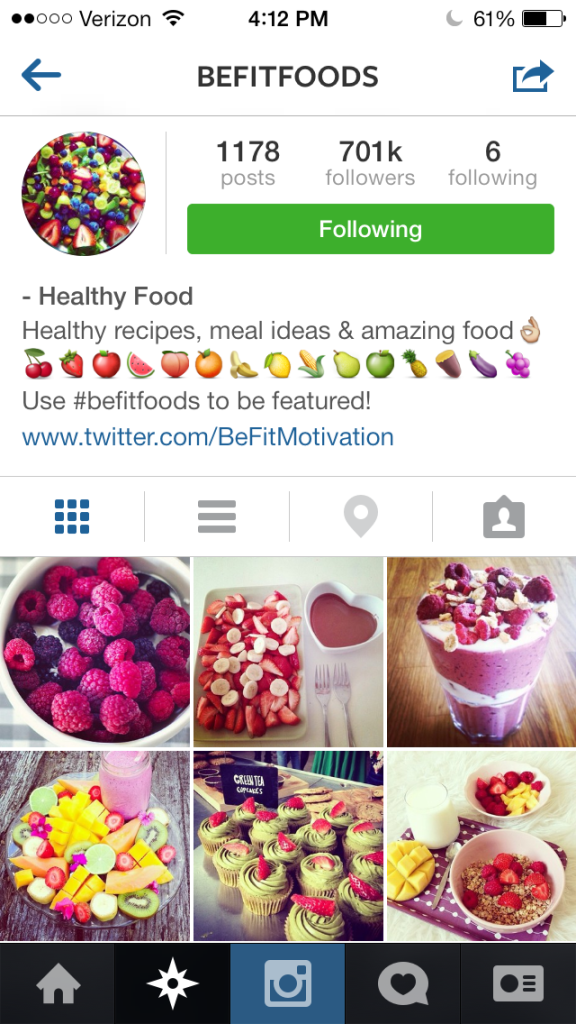Social Media’s Effects on Food
Don’t let social media posts fool you: we girls like to eat just as much as guys do.
To all the girls who only instagram pictures of their salad: we know your guilty pleasure is chocolate ice cream. While girls may consume less food than boys (which isn’t always the case if you’ve been to a cross country team dinner), that doesn’t mean they enjoy it any less.
And I know from the thousands of foodie Pinterest accounts that I am not the only one who loves to stuff their face with delicious sustenance. Not that I’ve ever actually completed a recipe from my account, but in my dreams, I am devouring Hawaiian BBQ Quesadillas and Funfetti Gooey Cake Bars for dessert.
Pinterest is not the only site that causes users to gaze longingly over scrumptious pictures of heavenly pastries. For a brief period, I followed the @ItsFoodPorn twitter account until I quickly realized it was a dangerous idea.
While these sites may be harmless to the average teenager who simply enjoys drooling over delicacies they will never attempt to prepare themselves, it can be detrimental to people who get the impression that people can lead healthy lives on a diet of these rich meals. For social media users in charge of their meal plan (just a heads up, your mom won’t be there to make you eat your green beans in college), they must be wary of indulging in these elaborate treats daily.
Does this help our obesity rate? Probably not. But for the health nuts of cyberspace, @befitfoods instagram account proves that eating healthy can be appetizing too. For every recipe requiring a Paula Deen amount of butter, one could also find an array of “skinny” dishes on Pinterest if they are willing to sacrifice sodium or fat content.
In addition to giving the social media community a skewed view of what every meal should consist of, some Instagram accounts also perpetuate gender stereotypes.
This is evident in the “#wifeymaterial” trend girls post along with pictures of a home cooked meal. Congratulations on becoming a functional adult! That will serve you well in college if you don’t want to live off ramen noodles.
Unfortunately, the phrase also implies that in order to be a suitable wife, one must be able to cook and perform other domestic tasks. The expression, whether some realize it or not, is prolonging a cycle of womanly degradation by undermining the importance of other qualities one should seek in a partner, like being funny, smart or athletic. Perhaps I’ll put “#wifeymaterial” with a picture of the next “A” I receive on a test.
Of course, that’s not to say women should be ignorant in the art of meal making. My 8th grade Family And Consumer Sciences class has demonstrated that if I had paid attention in class, perhaps I wouldn’t still struggle to scramble an egg.
While males may be busy seeking a girl who can efficiently make him a tasty sandwich, they are overlooking an opportunity to showcase their own cooking skills. Just a tip, guys: girls would would go crazy if you posted “#hubbymaterial” along with a picture of honey glazed salmon and a side of baked zucchini fritters.
While social media may be skewing both our idea of a balanced meal and gender roles, it brings variety and offers interesting choices for something we all must do: eat.
Your donation will support the student journalists of Lawrence Free State High School. Your contribution will allow us to purchase equipment and cover our annual website hosting costs.








